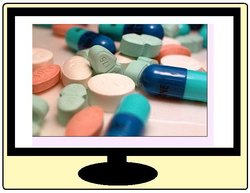
Now, all television programs in the US have drugs advertised that will cure everything from toenail fungus, to erectile dysfunction. There are heart medications, diabetes, and other drugs that are serious and with the correct use can be of great value. But, how can the general viewer evaluate the potential application to their condition? They can’t! But that does not seem to matter when it comes to the drug companies spending billions on advertising their products. The prevailing mantra that motivates them is that the “advertising promotes a dialog with the medical professionals and that is good for the patient”. The reality is that the drug companies hope that the patient will ask for a specific drug because the benefits will solve their condition. And, what about the doctors or health professionals who are pressured to write the prescription? Although hard numbers are difficult to come by, the AMA (American Medical Association), believes that about one third of viewers ask for a specific drug, and that two thirds of those actually receive the advertised drug. This is in spite of the fact that all of the side-effects which by mandate, must accompany the ad, are serious or dangerous, “including death” are reported. As a side note the AMA voted in November of 2015 to have the TV ads banned. But, they have no power to do so as only the Federal Drug Administration or Congress can change the rules. And, with the BIG PHARMA lobbyists and cash it would not be likely to happen soon.
Despite the fact that these drug advertisements are annoying and seemingly endless, there is a greater problem. With each ad blitz comes an increase in the medication cost. The pharmaceutical industry already over charges many drugs and advertising just raises the cost to the point that many people simply cannot afford the “wonder drug” being advertised. When we see a celebrity hawking a drug you can bet that we will pay for that endorsement; then watch the as the problem becomes worse as the next ad has a tort lawyer wanting us to join a class action suit against the current drug being advertised. And we wonder why the cost of medications are so high!
So, if all TV ads for drugs were ended, the cost of medications would go down right? Well no! We still have social media, papers, and the many periodical magazines. There seems to be no easy way out of the dilemma but stopping TV ads would be a nice break in the marketing madness. For a very comprehensive history of drug advertising please read the article from the National Institutes of Health here. It is lengthy but it is an excellent background about how we arrived with the current situation.

 RSS Feed
RSS Feed
